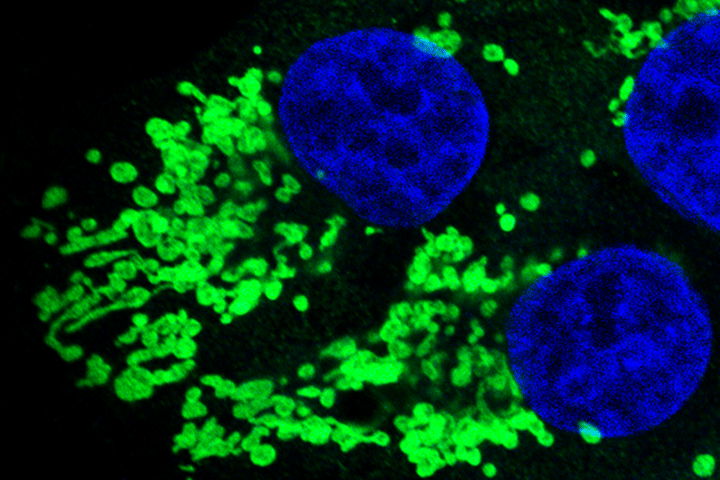PARP Inhibitor as Maintenance for Pancreatic Cancer Patients with BRCA1, BRCA2, or PALB2 Mutations

Could the addition of a PARP inhibitor after treatment extend the relapse-free survival of pancreatic cancer patients with BRCA or PALB2 mutations?
Maintenance therapy is given to help keep cancer from recurring after a successful initial treatment. It has been shown to extend progression-free survival for patients with many types of cancer. The PARP inhibitor olaparib, in particular, has shown efficacy in BRCA-mutated cancers. This phase II trial will investigate how well olaparib works as a maintenance treatment in patients with BRCA1-, BRCA2-, or PALB2-mutated pancreatic cancer that has been surgically removed and treated with chemotherapy.
How PARP Inhibitors Work
PARP is an enzyme that helps repair DNA when it becomes damaged. PARP inhibitors block the activity of PARP, resulting in an accumulation of DNA damage. Adding a PARP inhibitor to tumor cells that already have a defective DNA repair mechanism due to mutations like BRCA and PALB2 will cause the tumor to have a large load of unrepaired DNA damage. This will cause the cancer cells to die.
PARP inhibitors are supposed to be well-tolerated by patients. This is because the DNA repair mechanisms of healthy cells with no BRCA mutations have other repair mechanisms that function, so the effect of PARP inhibition is not as detrimental.
What the Trial Entails
Participants are randomized to one of two arms. Patients in Arm I receive olaparib orally two times a day for 28 days, while patients in Arm II take a placebo pill for 28 days. Treatment repeats every 28 days for 12 cycles if the cancer does not progress and the side effects are at an acceptable level.
Participating in the Trial
To participate in this clinical trial, patients must have pancreatic cancer with mutation in BRCA1, BRCA2, or PALB2 and have had surgery to remove the tumor, with no evidence of recurrent disease.
In addition to measuring overall survival, the trial will examine differences in outcomes between patients with different types of mutations, different tumor statuses before resection, and different neoadjuvant and adjuvant therapies prior to the trial.
We encourage you to consult your physicians for clinical trials that may be right for you. The website ClinicalTrials.gov provides more details about this trial as well as many others. You can visit the Let’s Win Trial Finder for a listing of all active pancreatic cancer clinical trials.





